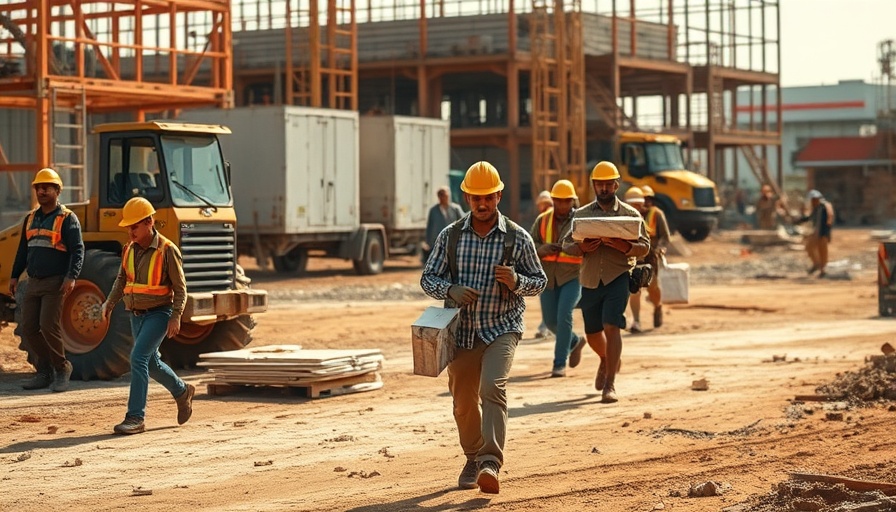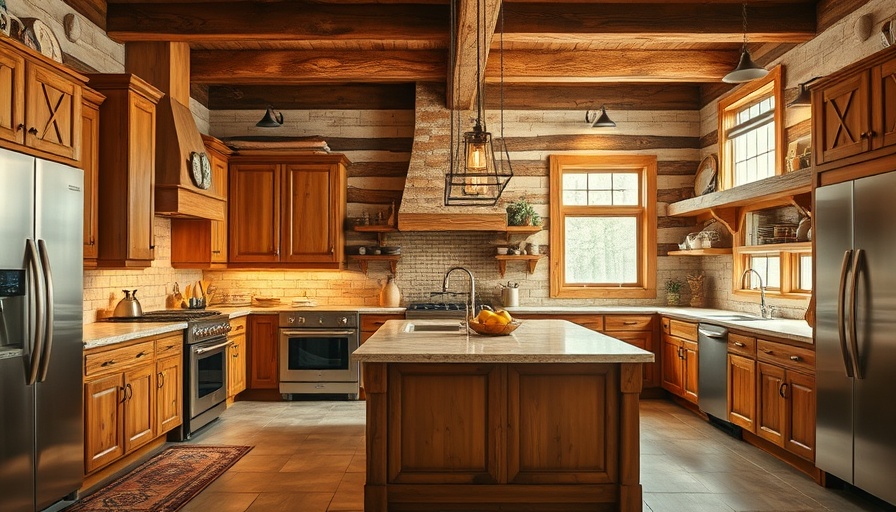
Tariff Turmoil: The Impact on California's Rebuilding Efforts
In the aftermath of devastating wildfires that ravaged Southern California, homeowners and builders are united in their distress. The ongoing debate over tariffs, spearheaded by the Trump administration, has led to significant uncertainty surrounding construction costs, creating a frightening scenario for many entrusted with the massive rebuilding effort.
Understanding the Construction Cost Crisis
The destructive wildfires of January 2025, which reportedly took down around 16,000 structures, have initiated a substantial construction boom in the Los Angeles area. However, the hope for a swift restoration is overshadowed by the complex landscape of tariffs on imported materials. Import duties, notably a staggering 145% on certain goods from China, have left builders scrambling to adjust their budgets for essential construction elements including windows, plumbing, and lighting fixtures.
The Fear of a Price Surge
Cory Singer, a general contractor actively involved in rebuilding efforts in Pacific Palisades, expressed his anxiety by stating, "It’s scaring the crap out of me." This sentiment resonates among many in the industry who share concerns over the unpredictability of future pricing. Singer explained that he has incorporated a contingency of 5% to 10% into his budgeting to account for possible increases driven by market volatility.
Buying Ahead: A Strategy Amidst Uncertainty
To mitigate the risks presented by fluctuating costs, some contractors are adopting a proactive approach by investing in bulk purchases. With manufacturers hinting at looming price hikes, many are securing supplies early to cushion against unavoidable expenses later. This approach poses challenges, however, as they must balance these strategies with the need for immediate construction.
Logistical Challenges of Resourcing
The unknown factors complicate logistics as builders, architects, and developers face decisions with limited information. Bryan Wong, CEO of San Gabriel Valley Habitat for Humanity, highlighted that the ambiguity around which tariffs might prevail is a major concern as they embark on one of the largest rebuilding initiatives ever seen in Los Angeles.
The Broader Context: Economic Implications of Tariffs
These local effects are, in fact, reflective of a wider economic dilemma. Tariffs have far-reaching implications not just for the construction industry, but also for consumers. The costs of labor and materials are only expected to escalate, causing potential delays in projects and a strain on budgets. Builders worry that this domino effect will ultimately be passed down to homeowners, making the dream of a new home even less attainable.
Moving Towards Solutions: What Can Be Done?
Homeowners affected by these rising costs might consider several strategies. Flexibility in design choices can reduce material expenses, and investing in energy-efficient options may yield long-term savings. Staying informed about tariff updates can also help in making educated decisions early in the building process.
Emotional Impact of Rebuilding Efforts
The emotional strain on homeowners cannot be understated. Many are not only rebuilding their properties but also reconstructing their sense of safety and normalcy. The stress of uncertainty in construction costs only adds to the already heavy burden of recovery.
Conclusion: Time to Act
As Southern California grapples with tariffs impacting construction, it’s crucial for homeowners and builders to remain vigilant and proactive. Navigating the uncertainties of the tariff landscape requires agility in decision-making and a focus on securing necessary materials promptly.
Please share your thoughts and stories about rebuilding in these challenging times. Engaging with local contractors and community groups can bolster collective resilience as we work together towards recovery.
 Add Row
Add Row  Add
Add 




Write A Comment